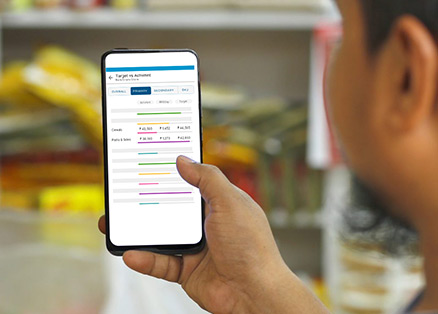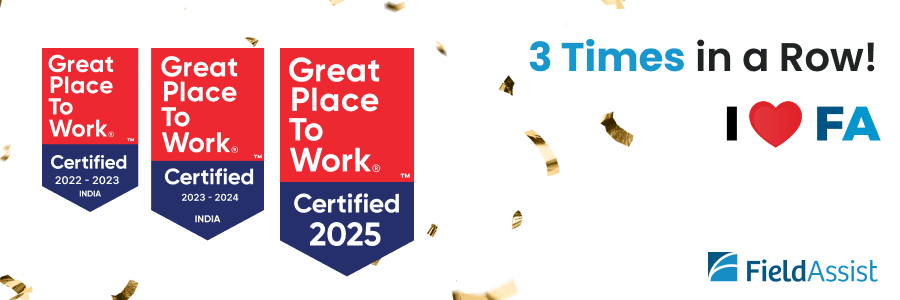Table of Contents
ToggleMeet Rakesh Kawde:
Rakesh Kawde is the VP – Sales at WeiKFiELD and is an FMCG professional with more than 24 years of in-depth experience. Currently working on the national business operations, he specializes in Sales & Distribution and developing innovative distribution models & GT strategy.
Lockdown Wave Hitting Hard:
The lockdown wave has taken over the entire world in the light of the COVID-19 pandemic. Though it seems like all the operations are running smoothly with the help of tools and conferencing software, manufacturing and distribution are the two worst-hit business processes.
To get an accurate understanding of this and other issues that are currently impeding the workflow, I interviewed Rakesh Kawde a few days back, the excerpts of which are summarized in the following story.
Explore the ways this lockdown has affected the entire stratum of manufacturing companies and what are some ways to tackle those effects.
Team Response:
While all of us are continuing to have the morning meetings, the inability to get past the general location restrictions make it impossible to work at maximum efficiency. The dealers and manufacturers are now stranded and the managerial professionals are now tackling the telephonic tasks.
When asked about the way his teams are coping with work-from-home, Rakesh said – “The teams are really coping well with work from home; especially considering the fact that currently all of us are in different locations due to nation-wide lockdown.
A typical work from home office day starts at 9:00 AM with a conference call. All HODs attend the conference, and we discuss the current issues and priorities for the day. Thanks to FieldAssist, we are able to do our meetings with all the required data at our fingertips.”
Efficiency, Productivity, and Supply Chain Status:
The transport, cargo, and even congregation of people at the manufacturing units, packaging units, and IT offices are severely affected to stop the spread of the virus. This has led most of the FMCG companies to work at 25%-30% efficiency only. Orders of packed products, even the ones falling in the essentials category are being fulfilled from the preventives and piping stocks are exhausting at a rapid pace. Once the Lockdown 2.0 ends, the manufacturing will commence, but, then again, major labor concerns still remain.
Rakesh agreed with my viewpoint and said – “Currently, we are at 20% productivity. Our distributors are also carrying 30 days preventives. So, we have stocks for 1 or 2 months (piping stocks) while our production is hampered because of quarantine.
Most of our sales team members are using telephonic order feature to at least drive 30 to 40% of the GT business. Logistics is running with an efficiency of 30%.
In terms of manpower, we have 64 people out of 203 that are able to connect with the retailers. From the last 10-12 days, the pipeline is also getting shrunk.
The important part is that once the Lockdown 2.0 is over, you have to start manufacturing again and rebuild the pipeline. But, then again, even if you have the raw material ready, you are lacking the manpower to start manufacturing at full throttle.”
Logistics and Raw Material Sourcing:
Once the Lockdown ends, most of the companies will swiftly try to resume their operations. While a restriction on the number of employees that can work in the manufacturing plants and factories will be limited, staff, availability of transport, and Govt. regulations in this regard will have a crucial impact on the entire FMCG sector.
When asked about the way things are faring at his end, Rakesh said – “Yes, it is a big challenge as out of 20 locations, only 3 or 4 locations are operational. To deal with this, we are trying for better transportation engagement. Further, our General Trade costs have doubled; Secondary Trade costs have become 1.5 times the earlier costs. Hence, operational costs have also been impacted.”
Sustaining CPG Brands’ Operations:
Every FMCG company is restrategizing and rethinking its business models and processes. Rakesh gave 5 pointers that can help the CPG Brands to sustain their operations and said – Personally, I have five suggestions:
- Focus on the liquidity of the current Stock Goods
- Activate more distributors for higher retail activation.
- Employ effective cost-cutting to reduce operational costs and spend only on the vitals.
- Make intelligent decisions regarding recruiting, and operations at the ASM level, SO level, and GM level.
- Focus on urban areas as the consumption is not going to reduce as compared to the rural areas.
Consumers can compromise on apparel and branded commodities, but not on food and healthcare facilities. Minimize SKU levels, and revamp the product baskets to operate profitably.”
Essential vs Non-Essential Products:
The COVID-19 pandemic sparked a debate of essential vs non-essential products. So, what must the FMCG companies that don’t make essential products do? Of course, a change in product baskets and innovative production & marketing strategies are required to keep the business processes running. Rakesh chose Dabur as an example and quoted – “Dabur has 4 verticals – Healthcare, Home and Personal Care, Dabur Ethical and Dabur Food. Of these, 2 are essentials and the other 2 are non-essentials. In light of this epidemic, Dabur has launched its own sanitizer.
So, for such companies, this is the right time to mix, innovate, and be in the game.
Similar is the case with packed foods and ready-mixes’ companies; they can weather the COVID-19 effects with revamped strategies.”
Incentivizing and Rewarding the Front-liners:
The lack of manpower has increased the burden of front-liners like field salesmen, drivers, and suppliers. So, it is important to offer reasonable incentives and incrementing the salaries of sales & Logistics teams.
He said – “Increased demands on the work front have increased the workload of salesmen & suppliers manifold. So, giving variable incentives is a must. Apart from this, companies have to rethink the numbers of scanners in logistics teams. While most of the village-based workers are still going to be absent, you have to mix and match your product dispatches, and scanners can ensure that the right stock is delivered to the right shop.
So, though the COVID-19 Lockdown has thwarted the growth and smooth operations in Indian FMCG, it is indeed a challenge that will make us emerge as better brands, with better and innovative business models and a heads-on attitude to tackle odds and crisis. For, someone said rightly – “Challenges are what make life interesting and overcoming them makes it beautiful.”
About Post Author
Chitransh Jain
A problem solver at his core, Chitransh is best at identifying strategic opportunities and executing action plans with great attention to detail. His eagerness to take up challenging tasks while upskilling continuously allows him to deliver impactful results.
















